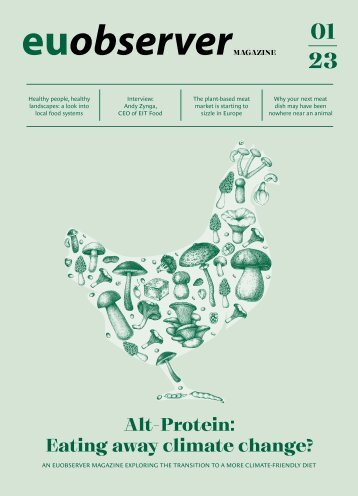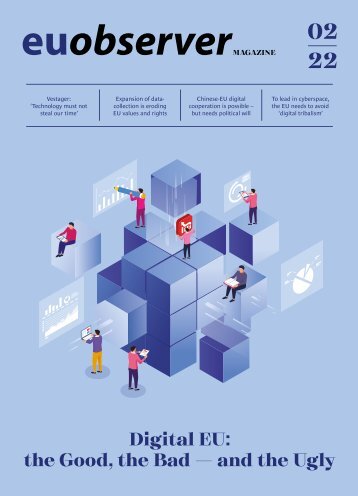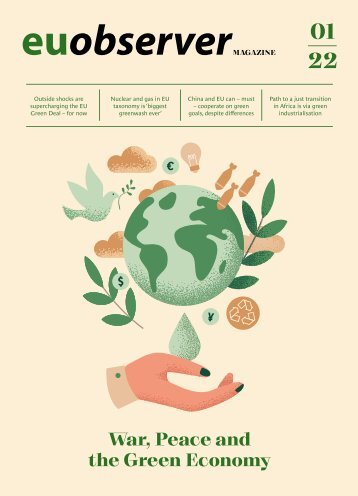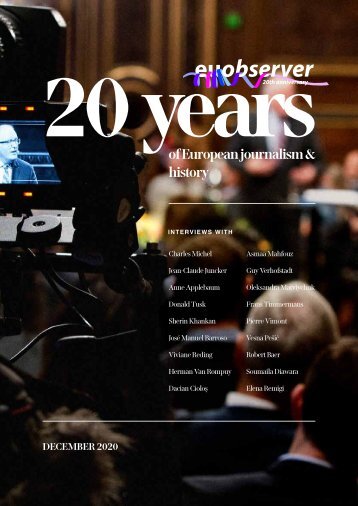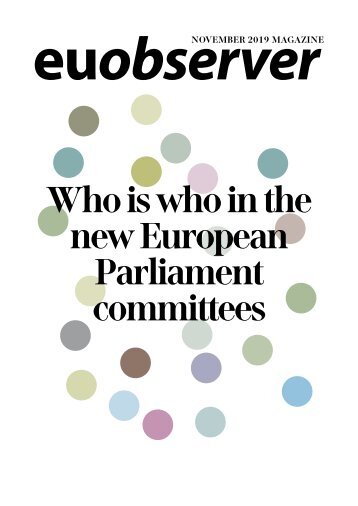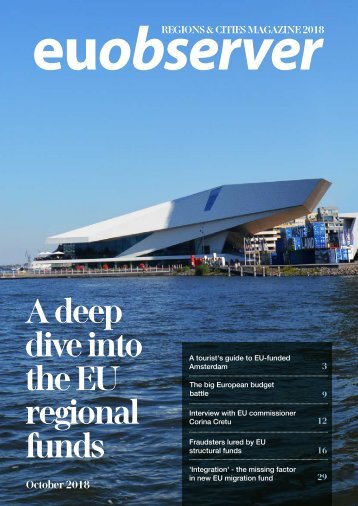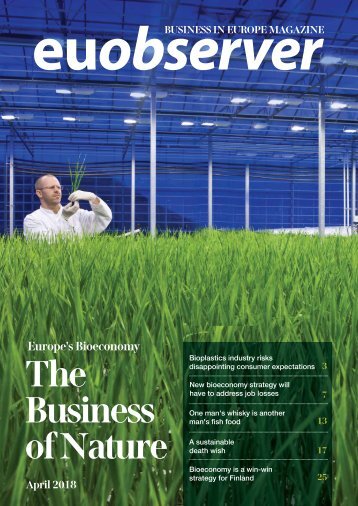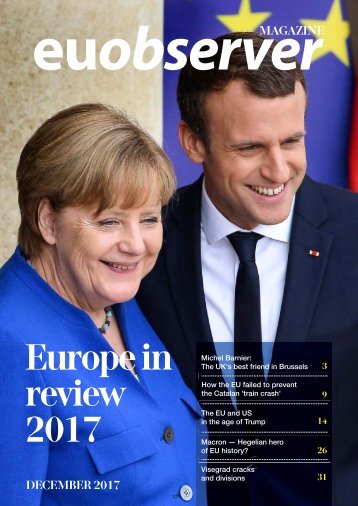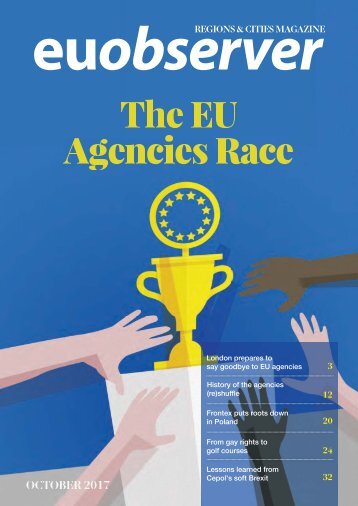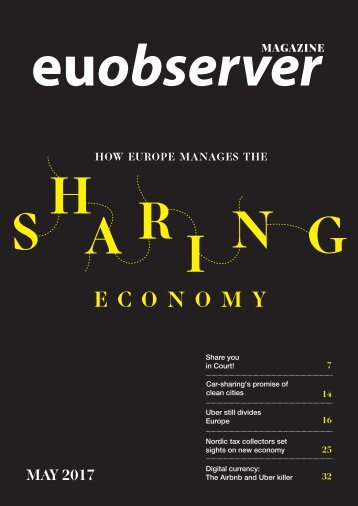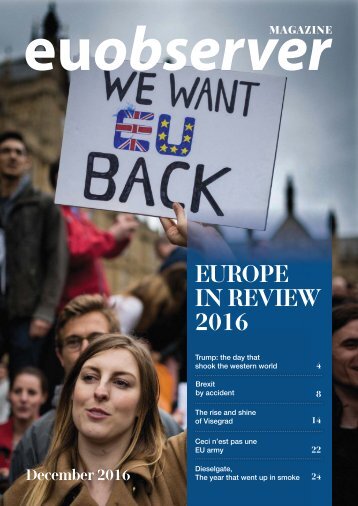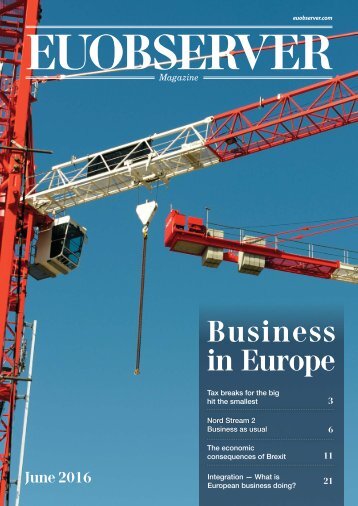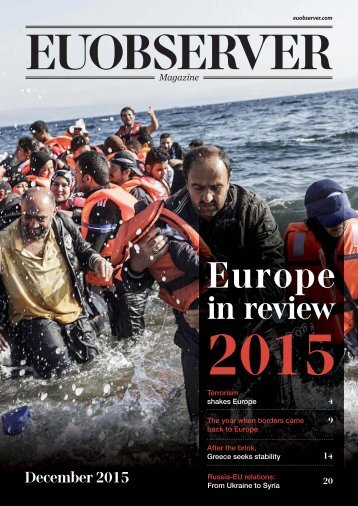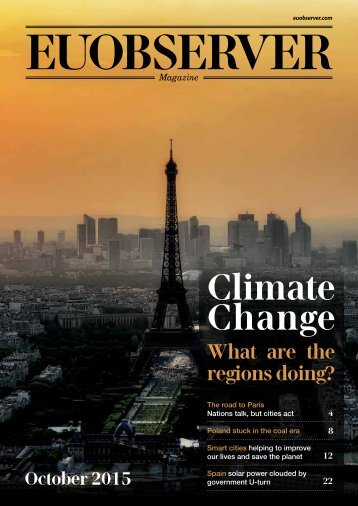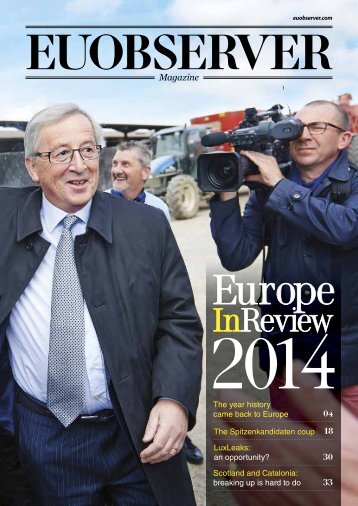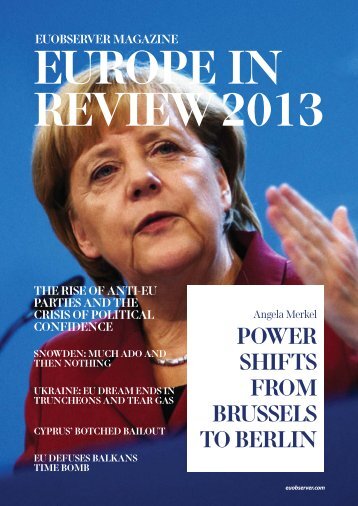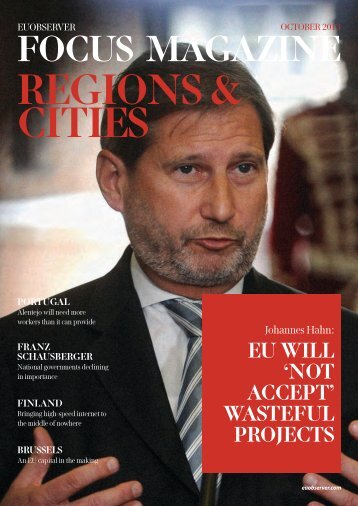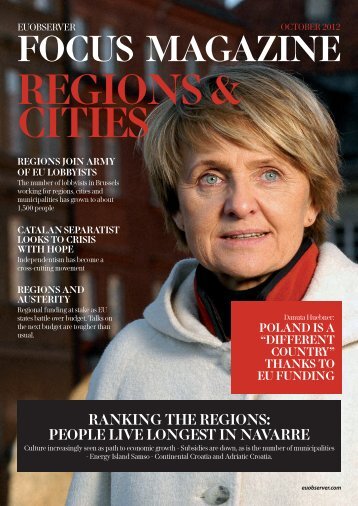Europe's Bioeconomy: The Business of Nature
- Text
- Food
- Nature
- Environment
- Union
- Agriculture
- Forestry
- Science
- Biotech
- Bioeconomy
DUAL FOOD QUALITY: A
DUAL FOOD QUALITY: A recipe for eastwest EU friction The accusation by some eastern European leaders that food companies were shipping inferior products to the eastern part of the EU has put the European Commission in a bind, leading to a months-long struggle to find a response. Some political leaders from the EU's centre and east – notably from Bulgaria, Czech Republic, Hungary, and Slovakia – have complained that their consumers are being treated as second-rate citizens in what is supposed to be a single European market. in Austria. Others included chocolate spread, soft drinks, and even some non-food products like washing detergents. The implied accusation – that food companies were discriminating against some EU citizens – put the European Commission in a tough spot last year. Internal commission documents, made public at the request of EUobserver, show that the BUSINESS IN EUROPE MAGAZINE 2018
commission's various directorates-general had different thoughts about how to tackle the issue – or even the extent of the problem. In March 2017, it was not yet a given that the commission would get involved at all. At a meeting in Brussels on 8 March 2017, EU commissioners were discussing the summit that would take place later that week. Justice commissioner Vera Jourova mentioned that the dual food quality issue was likely to come up at the summit, according to minutes of that meeting. general. Minutes from that meeting showed that at least one participant warned against the commission promising to launch any study into the issue. "The process would be too long and the sample used would be too small to be representative of the situation on the market," the internal document said. The paper also noted, however, that it "would be good to show that this was not an 'East vs West' problem". "She noted at the outset that this was not an issue relating to the safety of foodstuffs and other products, nor was it solely about their price and quality; it concerned the perception by consumers EAST VS WEST? On 4 April 2017, there was a meeting between in the member states involved that they were not being treated equally," the minutes state. NO IMPOSSIBLE PROMISES Commission president Jean-Claude Juncker agreed with Jourova's remark that the commission should not make any promises it was unable to keep. "The president felt that, even though this problem was perceived as real in some member states, it did not fall within the competence of the commission," said the minutes, adding that the commission "was not in a position to deliver results". Two weeks later, the commission held an in-house of Jourova's cabinet – and the European Brands Association (AIM). The lobby group told Hulicius that differences in food products were normal, because of differing raw materials as well as varying tastes. AIM also noted that it was not "an East vs West issue", because while the share of lower than in Austria, it was the same as in the Netherlands, Poland, and the UK. Around the same time, member states replied to a commission questionnaire about dual food quality. Not only western European member states like Germany and France reported that they have never received complaints, but neither did Slovenia, Estonia, or Malta. BUSINESS IN EUROPE MAGAZINE 2018
- Page 1 and 2: BUSINESS IN EUROPE MAGAZINE Europe'
- Page 3 and 4: Bioplastics industry risks disappoi
- Page 5 and 6: Ready for your new adventure in Bel
- Page 7 and 8: NEW BIOECONOMY STRATEGY WILL HAVE T
- Page 9 and 10: The EU's bioeconomy in figures The
- Page 11 and 12: Jobs in the bioeconomy in 2014 The
- Page 13 and 14: One man's whisky is another man's f
- Page 15 and 16: Photo: IBioIC exp
- Page 17 and 18: A sustainable death wish No one can
- Page 19: and then shattered into smaller pie
- Page 23 and 24: And despite earlier warnings not to
- Page 25 and 26: BIOECONOMY IS A WIN/WIN STRATEGY FO
- Page 27 and 28: GLOBAL SCARCITY OF NATURAL RESOURCE
- Page 29 and 30: Photo: The Humane League No end in
- Page 31 and 32: WTO arbitration panel in Geneva, bu
Inappropriate
Loading...
Mail this publication
Loading...
Embed
Loading...

